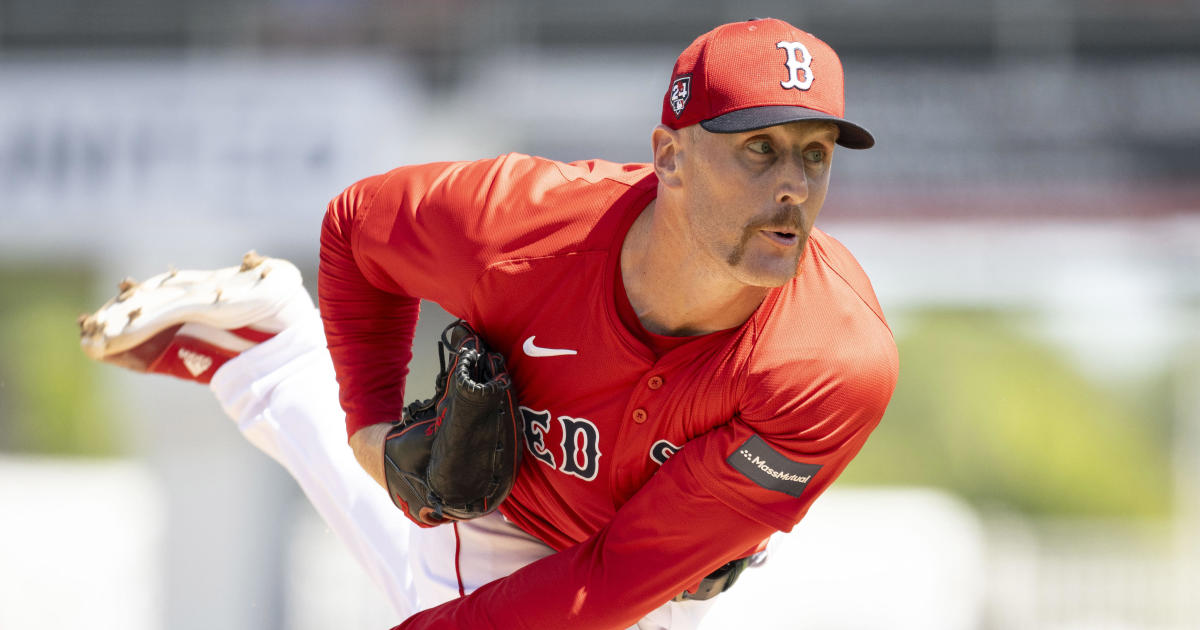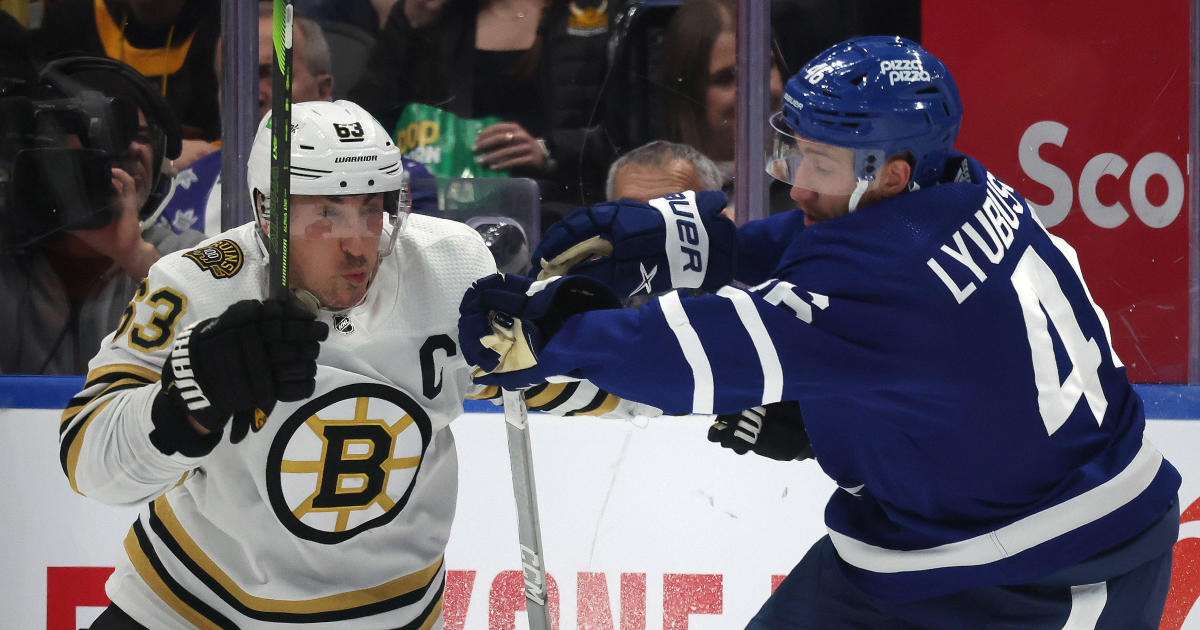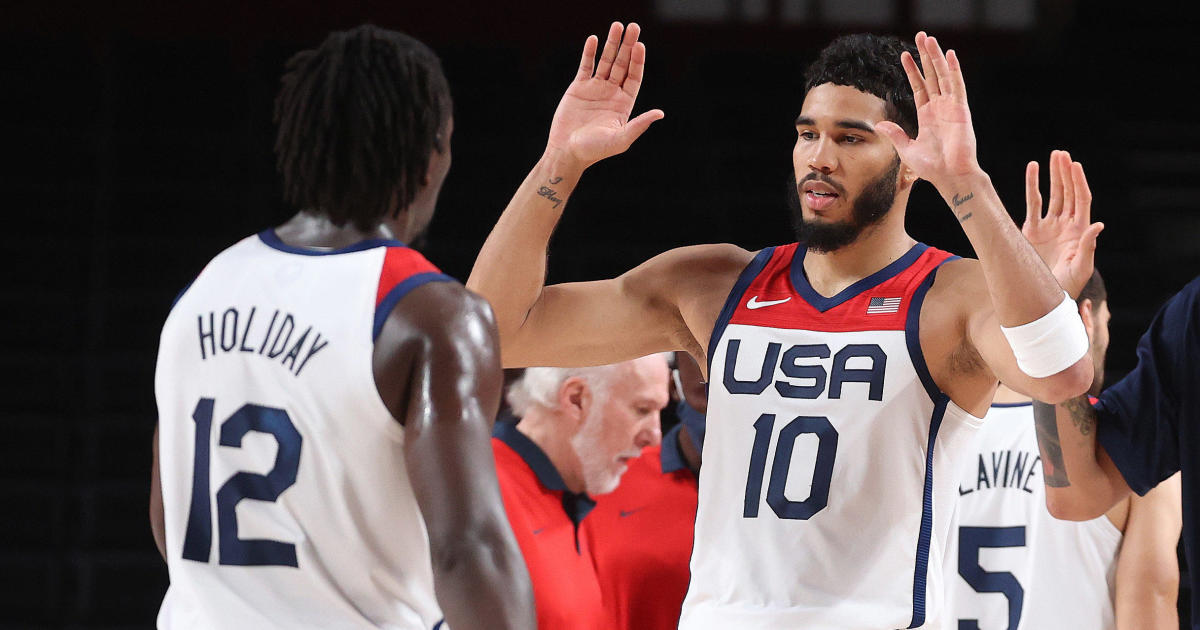Pittsburgh Pirates Are This Year's Loser Of Bud Selig's Preposterous Playoff Party
BOSTON (CBS) -- Imagine, if you will, a world where you can win 98 games in what is by far the toughest division in baseball, where you're deemed good enough to make the playoffs, but not without hanging your entire season in the balance of a three-hour spectacle while an inferior team from a horrifically weak division is granted the luxury of kicking back and waiting for the NLDS to begin.
This is reality for the Pittsburgh Pirates.
Over the past few weeks, there have been minor rumblings about how foolish the system left behind as a parting gift by Bud Selig really is. Grant Brisbee noted that either the Pirates or Cubs were going to get screwed this year. Ken Rosenthal asked if the current system is fair. I don't keep my eyes and ears glued to everything the Pirates say, but it seems like for their part, they're not complaining. They've got a baseball game they've got to try to win, so complaining about their circumstances wouldn't do them much good.
But that's my job. And I intend to complain quite a bit.
Consider that under the previous playoff system -- a system that was perfectly fine and needed exactly zero tinkering by Selig two years before he'd leave his post as commissioner -- the Pirates would be heading to Los Angeles to face the Dodgers in the NLDS. The Cubs, who won 97 games, unfortunately would be left out of this playoff picture. That would be an unfair fate for sure, given that the Cubs also played an unbalanced schedule in the toughest division in baseball, but that is tough cookies. Yes, the Cubs would deserve a playoff spot when compared to the Mets or Dodgers, but if a team can't finish in second place in its division, there's only so much sympathy I can have. You got hosed, but that happens sometimes. There's no need to screw over the Pirates because you got left out. Better luck next year.
But now in the current system, the Pirates will have to face Jake Arrieta, he of the 1.77 ERA and 22-6 record. Arrieta will either win the NL Cy Young Award or come in second in voting, and he went 3-1 with a 0.75 ERA in five starts vs. Pittsburgh this year.
Baseball being what it is, anything can happen. Arrieta might throw a perfect game and the Cubs might win 1-0, or the Pirates might rock him off the mound in the third and win big at home.
But the fact that the Pirates are even in this position is an outrage, and here's why:
Unbalanced Schedule In A Better Division
The MLB schedule is such that teams play many, many more games against teams within their division than they do teams outside their division.
The Pirates played 76 games against the Cardinals, Cubs, Brewers and Reds. Those four teams own a combined record of 329-319, a winning percentage of .508.
The Mets, meanwhile, played 76 games against the Nationals, Marlins, Braves and Phillies. Those four teams own a combined record of 284-364, for a winning percentage of .438.
The Pirates, as one might expect, struggled in those games against their division, going 34-42. The Mets, meanwhile, racked up wins against the putrid NL East, going 47-29.
That means that against the rest of MLB, the Pirates went 61-22. The Mets went 43-43.
The Pirates went 24-9 against the NL East. Had they been in that division, they project to have gone 52-24 in their division.
And for further proof of the Pirates being a vastly superior team to the Mets, look at their head-to-head record, which shows the Pirates winning six times and the Mets winning zero.
Yet the Mets get a free pass to the NLDS, while the Pirates get subjected to the whims of the baseball gods on one three-hour window.
And this is only a comparison to the Mets. The same could be done between the Pirates and Dodgers. Los Angeles went 46-30 against divisional opponents, who had a combined winning percentage of .471. The Dodgers went 46-40 against the rest of MLB, and 1-5 against the Pirates.
Yet the Dodgers, too, get a free pass to the NLDS.
This is exactly why the people who say "Just win your division!" are simple creatures.
Disproportionate Sample
Leaving all of that inherent unfairness aside, the fact that any MLB team has to play in a one-game playoff is absolutely ludicrous.
After a 162 games, a one-game playoff amounts to a 0.6 percent representative of the regular season. Check out how that compares to other sports' shortest playoff series:
MLB, 1 game: 0.6 percent
NBA/NHL, 4 games: 4.9 percent
NFL, 1 game: 6.25 percent
Only Bud Selig would have thought it to be a great idea to let less than 1 percent of the season determine something of significance. Oh, so you just played one-hundred-and-sixty-two baseball games? Good for you! You'll now play one game and if you lose on a bad call or a bad hop, your entire season is over. All the work you put in from March through September -- poof! Gone! Enjoy yourselves and have fun out there!
This is a stupid system, objectively.
Some people say that the one-game playoff is nothing new. Those folks are confusing Game 1 with Game 163. In the past, if 162 games was not enough to solve everything, then a one-game playoff served as the necessary decider. It was an organic situation. The new one-game playoff was created to stimulate some artificial excitement into MLB.
And make no mistake, both the Cubs-Pirates and Astros-Yankees games will be exciting*. But the fact that they exist speaks to the sideshow spectacle that Selig wanted to create. Winning some TV ratings on a Tuesday night should not come at the expense of devaluing the entire regular season of a professional baseball team.
(*The Houston-New York game probably won't actually be exciting because the Yankees are in a tailspin right now, losers of six of their last seven, and they have to face Dallas Keuchel and will probably lose 6-0. If the Yankees had been anything better than mediocre over the past two months, then this column could have been about them.)
The Solution(s)
If Rob Manfred wants to fix the faults of his predecessor, then he has two simple solutions.
The easiest, of course, would be to go back to the way it was. There was not much issue with letting the three division winners and one wild-card team make the postseason. Occasionally, a very good team would get left out of the picture (like this year's Cubs), but for the most part the wild-card system from 1994-2011 got the job done in a fair and exciting way.
Alas, it's hard to go back on something, and so it's unlikely that Manfred would eliminate the stupid new wild-card playoff game.
If that's the case, then MLB seriously needs to stop with the unbalanced schedule. By mandating every team to play 19 games against each of its divisional rivals, MLB is setting up a system where teams face vastly different schedules. To tack on very different end-of-season rewards -- first-class trip to the NLDS for one, one-way ticket to a make-or-break single game for another -- creates a system that will almost always produce an inequitable result.
If MLB insists on having the one-game charade and continues to stress the importance of the division, the schedule can still be tweaked to be less imbalanced. There's just no need to dedicate 76 games -- or 47 percent of the season -- against just one-fourth of the AL or NL. If there is an "American League Wild-Card Playoff Game," then both teams should have landed there based on similar circumstances in their league, not their division.
And once the schedule is evened out, the teams can be ranked accordingly. By that new standard, the Mets and Dodgers would (rightfully and fairly) be forced to fight in a one-game playoff, while all three NL Central playoff teams would be guaranteed a spot in the NLDS. They deserve that right because they are better baseball teams. Period.
That is fair -- and it's not all that difficult to see. Hopefully Rob Manfred deems it important enough to change before too many more seasons get ruined in the circus sideshow known as the one-game playoff.
Read more from Michael Hurley by clicking here. You can email him or find him on Twitter @michaelFhurley.



